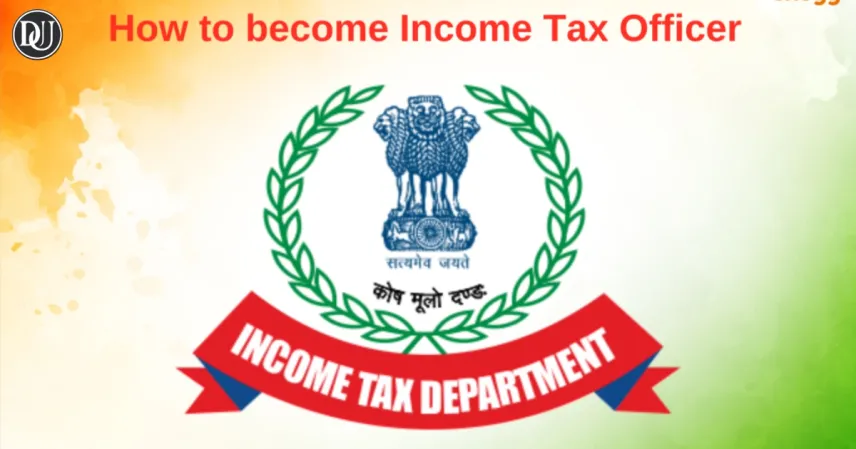The Income Tax Department has officially released details for the 2025 recruitment cycle, offering thousands of aspirants the chance to join the prestigious Indian Revenue Service (IRS). Among the most popular posts in this department is the role of an income tax inspector, a Group C position under the Central Board of Direct Taxes (CBDT). The path to this job typically goes through national-level competitive exams, primarily conducted by the Staff Selection Commission (SSC).
This article offers an in-depth look at how to become an income tax inspector, eligibility, job responsibilities, salary expectations, and upcoming recruitment details.
Who Can Apply: Eligibility Criteria Explained
To apply for the income tax inspector post in 2025, candidates must have a bachelor’s degree from a recognized university. The age limit generally ranges from 18 to 30 years. However, age relaxation is available for candidates from reserved categories according to government norms.
Apart from educational qualifications and age, candidates must also meet certain physical standards, especially if they are applying for inspector posts in investigative wings. Good eyesight and general fitness are considered important as some roles involve field duties and raids.
The Pathway: SSC CGL or UPSC?
The most common route to becoming an income tax inspector is through the SSC Combined Graduate Level (CGL) Examination. This exam is held annually and comprises four tiers: Tier I and II are computer-based tests, Tier III is a descriptive paper, and Tier IV includes data entry and skill tests.
For higher-ranking IRS positions such as Assistant Commissioner or Deputy Commissioner, candidates need to clear the UPSC Civil Services Examination. However, the income tax inspector role specifically falls under SSC jurisdiction and can be achieved without UPSC.
Exam Pattern and Selection Process
The SSC CGL examination includes sections on General Awareness, Reasoning, Quantitative Aptitude, and English. Tier II focuses on advanced mathematics and English language skills. Candidates need to score above the minimum cutoff in each tier to progress to the next stage.
Once selected, aspirants undergo training at the National Academy of Direct Taxes (NADT) in Nagpur. This is where they learn taxation laws, auditing, investigation procedures, and administrative rules.
The training ensures that each new income tax inspector is well-equipped to manage field assessments, scrutinize financial records, and contribute to direct tax collection processes.
Job Role and Responsibilities
The duties of an income tax inspector are both office and field-based. Inspectors are responsible for collecting tax data, verifying returns, conducting audits, and assisting senior officers during raids or investigations.
They also help in generating reports on non-compliance and serve notices to defaulters. It’s a highly responsible role that demands integrity, analytical skills, and attention to detail.
Being an income tax inspector provides early exposure to the operational framework of India’s taxation system, making it an excellent foundation for career growth within the civil services.
Salary Structure and Allowances
The pay scale for income tax inspector ranges from ₹44,900 to ₹1,42,400 under the 7th Pay Commission. In addition to the basic salary, inspectors receive House Rent Allowance (HRA), Transport Allowance (TA), and Dearness Allowance (DA). The monthly in-hand salary usually amounts to ₹55,000 to ₹65,000 depending on the city and other variables.
There is also opportunity for promotions based on performance and experience. The next promotional levels include Senior Tax Assistant, Income Tax Officer, and Assistant Commissioner, among others.
Career Growth and Promotions
Promotions in the income tax department follow a structured timeline, although performance and departmental exams can accelerate growth. An income tax inspector can be promoted to Income Tax Officer (ITO) within 5–7 years.
Further promotions can lead to positions such as Assistant Commissioner of Income Tax, Deputy Commissioner, and even Commissioner with sufficient years of service and examination clearance.
The scope for career advancement, coupled with job stability and government benefits, makes this position one of the most sought-after roles in central government recruitment.
Latest Updates on 2025 Recruitment
As per the 2025 notification, applications are expected to open shortly after the SSC CGL Tier I results. Aspirants should keep an eye on the official SSC portal for detailed dates and guidelines.
The total number of vacancies for income tax inspector this year is projected to increase due to pending retirements and growing departmental needs. This makes 2025 a great opportunity for candidates to secure a prestigious government job.
Why Choose a Career in Income Tax?
A career in income tax offers stability, respect, and meaningful work in ensuring the financial accountability of the nation. It combines the dynamics of administration, investigation, and finance under one umbrella.
Working as an income tax inspector not only provides job satisfaction but also places you at the core of India’s economic governance. It is ideal for individuals who are detail-oriented, love working with data, and have a strong sense of duty.
Preparation Strategy for Aspirants
For anyone aiming to become an income tax inspector, consistent preparation is key. Candidates should start early, cover the SSC CGL syllabus thoroughly, practice mock tests, and stay updated on current affairs and tax-related developments.
Regular revision, concept clarity, and time management will go a long way in cracking the exam and landing the job. Joining a reputed coaching program or following structured self-study can also help in building a strong foundation.










